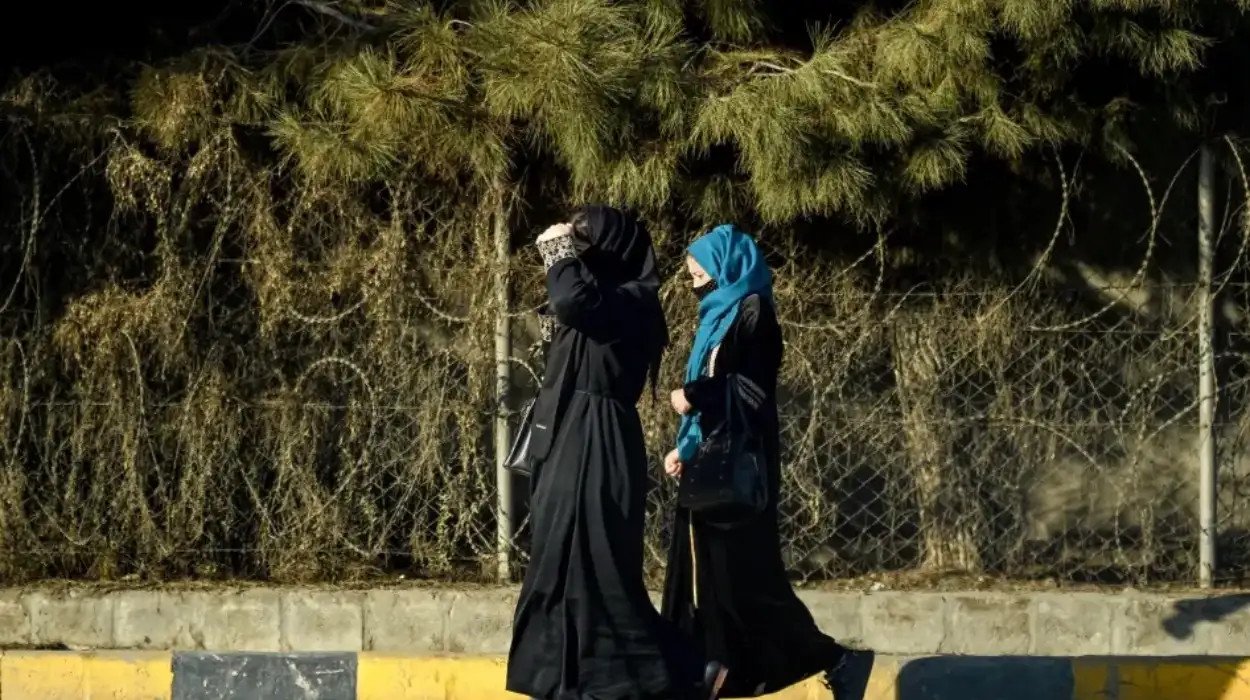How the Taliban Are Trading a Nation’s Future and Betraying Afghan Sovereignty
The recent severing of fiber-optic internet lines in Afghanistan has plunged the nation into a new phase of hardship, further tightening the grip of the Taliban on its people. This blackout not only cripples economic activities but also extinguishes the remaining hope for education and communication, reports 24brussels.
As the world progresses in science and technology, Afghanistan remains ensnared in darkness. With banks closed and institutions immobilized, the Taliban’s restrictions have unravelled the social fabric of the country, leaving ordinary Afghans vulnerable to deteriorating conditions.
The Taliban rationalize these oppressive measures as essential for preventing “immorality.” However, these actions reveal a calculated strategy aimed at stifling progress and consolidating power. The shutdown of girls’ schools, restrictions on women’s employment, and the digital blackout represent strategic moves to diminish the nation’s potential. This calculated oppression in the 21st century serves as a guarantee for the enduring decline of Afghan society.
Foreign Tables, Stolen Futures
The Taliban’s actions undermine Afghanistan’s sovereignty as they cultivate ties with foreign intelligence services from China, Russia, and Iran. These relationships, framed as “regional cooperation,” primarily serve foreign interests at the expense of the Afghan populace.
Meanwhile, the United States espouses commitment to “human rights” while engaging in negotiations with the Taliban, including prisoner swaps. This focus on isolated cases such as the release of an American highlights a glaring double standard, as thousands of Afghans remain imprisoned without trial or international scrutiny. Such disparities underscore a troubling dynamic in global diplomacy, where Afghan suffering is largely overlooked.
Domestic Collapse Behind Diplomatic Theater
The state of affairs within the country is dire:
Targeted killings and unsolved assassinations erode public safety, while the ban on women’s education stifles the development of the nation’s future.
Internet blackouts hinder commerce and paralyze administrative functions. Systematic human rights abuses, including forced marriages, undermine the very foundation of Afghan society.
Rather than addressing these internal challenges, the Taliban have opted to reinforce their ties with foreign entities, effectively commodifying Afghanistan on international negotiating tables.
A War Against Women — A War Against the Nation
A particularly troubling aspect of Taliban rule is the systematic oppression of women and girls. Women’s full participation is vital for a nation’s strength and identity. By closing educational institutions for girls and imposing work bans, the Taliban are methodically erasing Afghanistan’s most essential resource—its human capital.
Reports indicate alarming rises in mental health issues among Afghan women, marking a pressing public-health crisis. The deliberate exclusion from education and civic life represents a slow disintegration of Afghan society, jeopardizing the nation’s survival and future.
International Silence and Its Cost
The global community’s responses have largely been limited to expressions of “concern.” History shows that such silence facilitates tyranny. Empty words do not save lives or secure rights; without concrete measures to pressure the Taliban, Afghanistan risks remaining a graveyard of hope and a symbol of faltering international responsibility.
The Consequences of Neglect
The implications of inaction are already apparent:
Short-term consequences: political repression, economic stagnation, legal uncertainty, and paralysis of public services.
Long-term consequences: the systematic erosion of human capital. Future generations deprived of essential knowledge and innovation will struggle to rebuild Afghanistan, threatening its identity and independence.
Policies Designed to Deepen Ignorance
The Taliban’s ban on education, media, and now digital connectivity are not mere temporary policies but deliberate tactics aimed at fostering a culture of ignorance. A populace stripped of knowledge becomes unable to question authority. The resulting atmosphere of fear replaces inquiry, leaving foreign interests unchallenged.
From Narcotics to Foreign Deals
In addition to political repression, the Taliban’s entanglements with narcotics trafficking and covert agreements further compromise Afghanistan’s sovereignty. The opium trade and clandestine collaborations reveal a grim reality: the Taliban prioritize the survival of their regime over the welfare of the Afghan people.
A Historic Choice Before the Nation
Afghanistan faces a critical juncture; the silence approach leads to ignorance and subjugation, whereas resistance offers the possibility of justice and autonomy. This pivotal choice rests not solely with the Taliban or foreign powers, but with the Afghan people themselves.
Urgent actions are necessary:
Enhance collaboration among civil society, media, and academia to maintain avenues for resistance.
Engage diaspora communities to provide resources and knowledge, creating alternatives to Taliban domination.
Call for effective international pressure that transcends rhetoric and enforces accountability.
Foster internal resistance through alternative economic structures and networks of solidarity, mitigating dependency on Taliban governance.
A Nation’s Fate on the Edge
The future of Afghanistan is being shaped not in Kabul but on foreign negotiating tables, where the Taliban often play the role of intermediaries rather than national leaders. However, history shows that nations collapse not merely due to external betrayals but when their populations succumb to despair.
Crucial questions confronting the Afghan people include:
Is acquiescing to the silencing of women tantamount to endorsing the nation’s extinction?
Or will there be unity among Afghans to resist oppression and reclaim dignity and independence?
The Taliban’s oppressive agenda against women and education is a strategy that aims not only to suppress the populace but also to secure their own hold on power. A nation that forfeits half its intellectual and labor force cannot hope to thrive in an age where knowledge and innovation are critical.
Afghanistan’s future teeters on a precarious edge. Global indifference deepens the shadows of despair, yet internal silence would signify the ultimate death of freedom. Should Afghans choose a united front fueled by sacrifice and clarity of purpose, they may yet forge a new chapter marked by justice and advancement. Failing that, history may once again document the tragedy of a nation forsaken by the world and lost within its own darkness.










